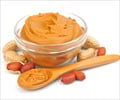Researchers have found that a simple blood test can predict who can have severe allergic reactions to peanuts and seafood.

However, these tests cannot predict the severity of allergic reactions. A simple, safe blood test can now accurately predict the severity of each person's allergic reaction to foods.
The immune cell measured is the basophil and the blood test, called the basophil activation test (BAT), requires only a small blood sample and provides quick results.
"While providing crucial information about their potential for a severe allergic reaction to a food, having blood drawn for BAT testing is a much more comfortable procedure than food challenges," said first author Ying Song, MD.
"We believe BAT testing will provide accurate information in a safer manner," Song, also a researcher in the Jaffe Food Allergy Institute at the Mount Sinai Hospital, noted.
For the study, investigators took blood samples from 67 patients, aged 12 to 45 years, who also underwent a food challenge with a placebo or with peanut, tree nut, fish, shellfish or sesame.
Advertisement
Before the randomised food challenge, researchers collected blood from all patients and analysed the results which showed a strong correlation between BAT testing data and food challenge severity scores.
Advertisement
The study was published in The Annals of Allergy, Asthma & Immunology.
Source-Medindia















